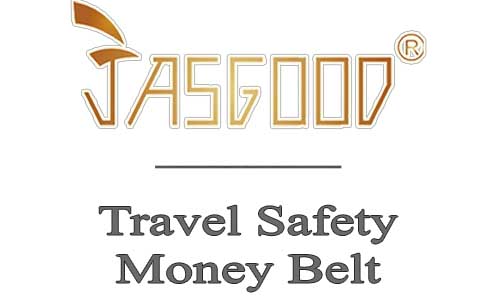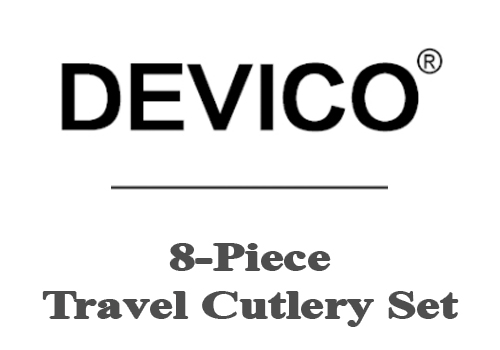
- My Top 100 -
TRAVEL TIPS
This post contains affiliate links. You can help support this site, simply by using my links when booking your accommodation or purchasing your gear. That way, I make a small commission at no extra cost to you – which helps in maintaining the site and keeping it clean of annoying ‘pop-up’ and ‘click-bait’ ads.
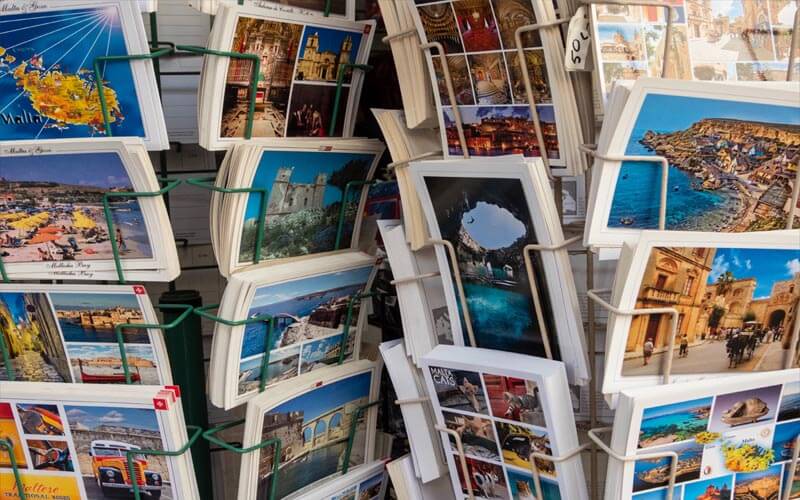
Most of us were not born seasoned travelers, it’s usually something that comes with experience and by making MANY mistakes (trust me I have made my fair share) which is why I have compiled a list of my top 100 travel tips.
Whether you are a new or seasoned traveler, my hope is that you will find some new travel hacks here to help you along your journey. So without further ado, let’s dive straight in…
PICKING A TRAVEL DESTINATION
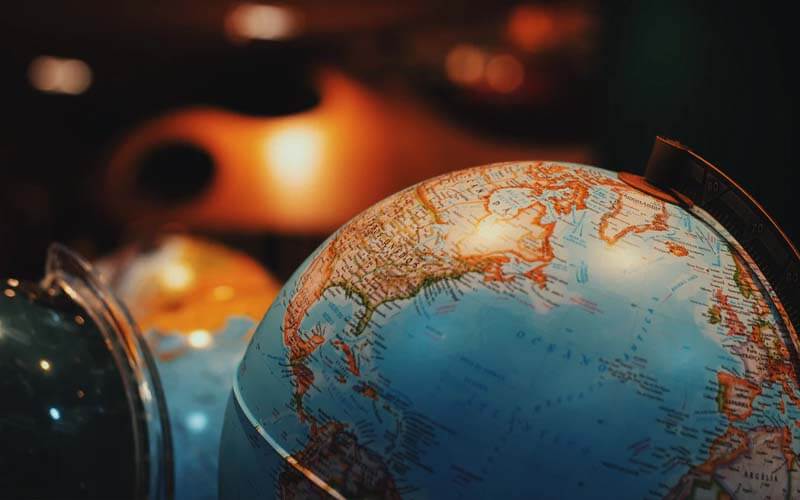
1. Travel out of season
Check the weather and take the seasons into consideration before picking your vacation destination. You may want to avoid the extreme hot and cold months and skip trips during the school holidays. This is when the travel industry likes to hike up it’s prices, to take advantage of families who can only travel during these times.
The shoulder season is my absolute favorite time to travel as prices go down and there are fewer crowds, so you can get the best of both worlds. Research the ‘peak’ seasons for a destination, then travel just before or after these dates and you’ll have a fabulous time. Maybe the sun won’t shine as hard (on the plus side it also won’t be as hot) but hotels and airlines will lower their prices to attract customers during this time.
Alternatively, traveling in the ‘low’ seasons can save you some even more additional cash, but it could also have a huge impact if the weather conditions are not suitable to the type of holiday you have planned. I mean you are not going to get much of tan or enjoy hanging out by the beach, if it’s raining all day because it’s monsoon season.
2. visit YOUR BUCKETLIST DESTINATIONS
If you have always had your heart set on going to Ireland (for example) why not make that happen? You never know when the journey of life is going to end. You don’t need to follow the beaten path that every traveler takes, just because you feel you should.
One of the first stops I made when traveling was to Salzburg (Austria) because I grew up watching the sound of music (ahhh, I think I just dated myself there) and it’s one of my absolute favorite movies. I had the time of my life exploring and of course took the official tour, singing my heart out with a bus load of other tourists through the ALPS – who also had Salzburg on their bucket list.
Try narrowing down to countries (or better yet, cities) that you really would love to visit. If exploring Thailand’s beaches sounds more appealing to you than visiting say Berlin or Moscow, then this will make your choice a little bit easier. I love getting off the tourist trail most of the time, but of course, the world’s most visited attractions are popular for a reason. Just be aware that the sad reality about the majority of the world’s most hyped destinations is that they are often overcrowded and overpriced.
3. BUT DON’T DISCOUNT NEW DESTINATIONS
Traveling to a new country you have never been to before, is always a great idea. Get off the beaten path, yes I know that’s such a cliché but you should still attempt it. There are many interesting and unusual places in the world that do not see as much tourism, many of my most memorable travel experiences have happened to me in such areas.
Without fail, the best places I have visited have not been the hyped destinations like Mykonos and Tulum. Unless you care about the ‘scene’ in a place (or any other ultra-hyped destination) there is always a less well-known destination that will give you better experience for less money and certainly less crowds.
When I do go back to the same destinations, I do my best to stay in a different hotel, eat in a new restaurant and to create a different itinerary for myself. We are naturally inclined to go to places we have loved in the past but diving into the unknown can also be extremely rewarding.
Don’t be afraid of other destinations, the media loves to report on tourists getting killed or kidnapped, but the fact is that the world is not nearly as dangerous as the media makes it out to be. Most people in foreign countries are friendly, trustworthy, generous and willing to help you out.
4. AND DON’T DISMISS WHAT’S ON YOUR DOORSTEP
If 2020 taught us anything in the travel industry, it’s that staycations can be awesome and with the added bonuses that there are no borders, security, immigrations or jetlag to endure. If you can’t afford to travel overseas, you don’t have the time to go away for more than a few days or the thought of traveling makes you nervous, start off by what’s in your very own backyard.
I know that we all dream of traveling to faraway lands and exotic destinations, but keep in mind that we all live somewhere that is a travel destination to someone. Once you start researching, you will probably find that there are hundreds of amazing options close to home. This strategy is one of the most overlooked and cheapest ways of bringing more travel into your life.
Make sure to sign up to discount sites like Groupon for deals on local hotels, restaurants and activities. My friends and family actually call me the ‘Groupon Queen’, a title I am most proud of because I score so many incredible deals! Groupon is available in many countries across the world…
5. PLAN YOUR BUDGET & START SAVING EARLY!
It goes without saying that money is a determining factor when it comes to choosing a vacation destination. You do not need to win the lottery, nor have a trust fund to travel but you also don’t want to be spending ridiculous amounts of money. It is a good idea to have a budget to stick to, but let’s be honest, most people (myself included) tend to go over their budget – so start saving now (like, right now) and always aim to bring more money than you think you will need.
In general, traveling internationally is pricier than staying in your own country. In some cases what you do not spend on flights when traveling close to home will get spent on a fancier hotel and more upscale restaurants. On the other hand, you will pay more for a flight to say, Thailand but the accommodation and food will be much less once you arrive. Finding out the airfare, accommodation and the additional costs for your destination will help you to determine which destinations are within your reach financially.
A site that I like to use for getting an idea on those ‘additional costs’ is an online living database such as Numbeo, which provides a comprehensive list of common daily expenses (i.e. the cost of a meal, a bottle of beer or cup of coffee, public transportation and much more).
6. WHO ARE YOU traveling WITH?
Are you a solo traveler, a family, traveling as a couple or with friends? The people you are traveling with will have a huge impact on where you choose to go. If you are traveling as a family with children then you will probably want the travel to be educational in some way, considering age appropriate sights and activities. Needless to say, if you are going on a family holiday you will want to choose a completely different destination than you would say, for a romantic getaway with your partner. Additionally, if you are traveling solo you may prefer to stay in hostels or go on an organized group tour because they are perfect for meeting and socializing with other solo travelers.
Just remember though, if you’re traveling with others it does not mean that you have to do everything together. If you friend would rather spend time at The Acropolis but you’d rather spend the afternoon strolling around in search of the best Greek latte, split up for a few hours. Don’t be afraid to skip landmarks or attractions that do not interest you, there are only so many hours in a day and spending it on activities that do not appeal to you isn’t worth it (even if it’s something as major as The Acropolis).
7. JOIN A FACEBOOK TRAVEL GROUP
For inspiration and answers to specific questions, Facebook ‘travel groups’ can be a great resource. There are many Facebook groups that are perfect for any traveler looking to connect with other like-minded individuals sharing their passions, experiences and travel tips.
There are a multitude of groups that have cropped recently, some far better than others. My absolute top picks are Girls Love Travel (a global community of active and aspiring female travelers providing resources and empowerment to one another through safety, socializing and support) & Travel Community (a place for like-minded people (not just girls) to engage with others that love to discuss travel).
BTW; The Charmed Nomads also has a private Facebook travel community, run by yours truly, that you are most welcome to join 😉
8. USE SKYSCANNER FOR BOOKING FLIGHTS
We all want to save money on flights, right? When it comes to travel, your flights will likely be your biggest expense and that’s why I always book my flights through Skyscanner, as it consistently finds me the cheapest flights. They are unbiased and show you all of your travel options in one place, saving you both time and money and what I really like is that it’s free to use with no hidden charges or taxes (sneakily tacked on at the end).
If you can be flexible and are not too picky about your destination, you can also search by ‘ENTIRE COUNTRY’ (and consider local land travel to reach your desired city) or my absolute favorite feature ‘EVERYWHERE’ (which lets you search for flights all over the world from your destination).
If you need a direct flight on a certain day, Skyscanner will not work quite the same magic but you can rest assured, it will always help you find the very best price!
9. OH, AND ALSO SIGN UP FOR FLIGHT DEALS
You can also score some wicked prices by signing up for the flight deal website, Scott’s Cheap Flights. Simply enter your departure airport and watch for epic flight deals to arrive to you inbox, that could very well be the deal of a lifetime!
The folks at Scott’s Cheap Flights pride themselves for tirelessly scouring airline sites and utilize all of their skills to look for insanely low tickets, rare deals, mistake fares and they only deal with the top-rated airlines. Most are non-stop or single-stop flights with the occasional first-class tickets too, YES please! Simply, if it’s not an amazing deal, they won’t send it. Period.
If there is one travel subscription you should consider signing up for, Scott’s Cheap Flights should be the one. It costs $49 per year and they have a 14 day free trial for you to take a look first, however this is an expense that will pay for itself and much more with just one single deal and is a total no-brainer in my books.
I estimated that I saved at least $2,000 last year by booking flights using this strategy. I only wish I had known about it before I booked those flights to Thailand (on our 2016 family trip) that literally cost me a small fortune!
10. IF TRAVEL IS IMPORTANT TO YOU, MAKE IT A PRIORITY
Regardless of the type of getaway or to which destination you choose, if you want to travel more you can – but you need to make it a priority. Seriously, if you don’t have enough money for travel yet you have a wardrobe full of designer clothes that you never wear or eat out everyday, then it’s obvious that travel is not your priority. Currently I do not own a lot of stuff, but I sure have lots of priceless memories…
Since I started to make travel a priority in my life, one thing I’ve noticed is that many people back home love to tell me how lucky I am and how they wish they could travel more often, while making excuses why they can’t travel themselves. “It’s too expensive”, “I can’t get time off work”, “Who will look after my pets?” and when I suggest solutions to these problems, they still don’t take action. Why? Because it’s simply not their priority.
If you want travel to be a priority in life it will be – the daily Starbuck coffees’, redecorating the living room, a new seasonal wardrobe and the latest iPhone can wait. If you truly want to travel more, you can make it happen. You can start with a weekend in a different state, career breaks are possible and you can become a member with Trusted Housesitters and have other travel/pet lovers look after them for free!
TRAVEL PLANNING TIPS
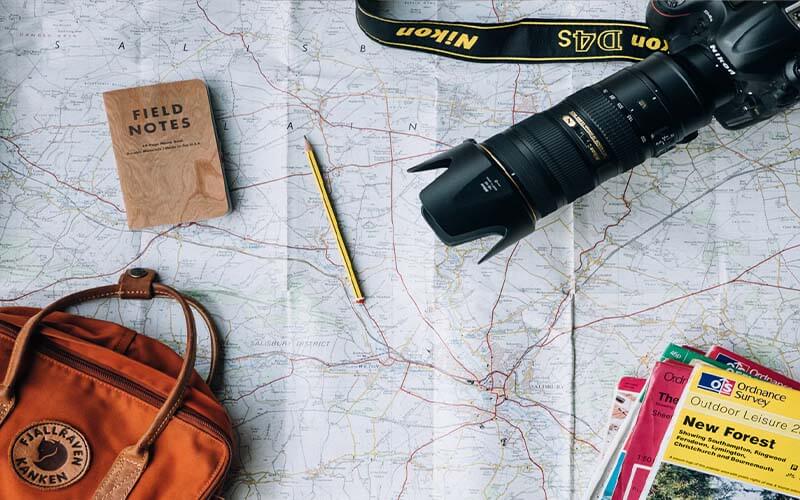
11. CHECK YOUR PASSPORT’S EXPIRATION DATE
Before you can travel anywhere internationally, the first order of business is to ensure that you have a valid passport. Most countries will not allow you entry without a passport that is valid for at least six months beyond the completion date of a trip.
The last thing you want is for your vacation to be over before it has even started, by being turned around at the airport because you didn’t realize that your passport was expiring soon – or worse, already expired!
12. FIND OUT IF you require A VISA?
Another thing you will need to check is, if you require a visa to the travel destination you have chosen? Unfortunately, not all countries are created equal and many people were not lucky enough to be born in the US, Canada, Australia, New Zealand or the EU to be able to travel the world visa free, a lot of people around the world still need a visa to visit certain countries.
Visa applications can certainly complicate travel planning – in some cases, you may need to contact the consulate long before your intended visit, apply for that visa, pay the visa fee, provide photos and then wait for either an approval or a denial. Other countries will only require a visa upon arrival, so you will need to do some research on whether your chosen destination requires a visa and how long it takes to process.
Visa requirements vary from one country to another, depending on your nationality, so I recommend a good place to start your research is with Passport Index (a free online travel visa checker).
13. ALWAYS GET TRAVEL INSURANCE
Travel insurance is the most important thing you will ever purchase, that you never want to use! No one ever thinks they will ever get sick, injured, experience flight interruptions, have their valuables stolen or need to be sent home – but it does and it happens all the time!
Every experienced traveler I know believes in travel insurance because we’ve all seen or experienced the craziest things happening. Whatever you do though, do not purchase a travel insurance policy through your bank, as they charge the absolute highest rates – learn from my rookie mistake here. These are the best companies that I have thoroughly researched, used myself and highly recommend:
Safety Wing – it’s the cheapest, they cover all types and durations of travel – perfect for digital nomads, they have covid-19 in it’s policy, you can purchase or extend even if you’re already on the road and they cover up to age 69.
World Nomads – they cover everything previously mentioned by Safety Wing however become the cheaper option between age 39-69, cover the more adventurous and dangerous activities (such as scuba and sky diving) and they also cover loss of electronics.
After age 70 (not that I have obviously used them myself) my research has shown that Insure My Trip is most likely is your best option, in both excellent coverage and price.
14. CONSIDER GETTING VACCINATED
Because getting sick in a foreign country is never fun and some countries have a much higher risk of certain diseases, than in your own country. In addition, some countries will actually require you to get vaccinated in order to visit them first so, regardless of your opinion on the subject you just may have to or choose a different destination.
Do your research and learn which travel vaccinations you may need for the areas you’re planning to visit and make sure to get your shots well in advance. You can usually plan on getting the vaccines you need, at least one month in advance of your trip. You can check out the official government website (CDC) Centre for Disease Control and Prevention for the most up to date info.
15. BOOK FLIGHTS 2-3 MONTHS IN ADVANCE
Flying can often be one of the most expensive parts of any trip but with practice, you can learn how to book super cheap flights and save tons of money. All of the experts say that booking your airline tickets 2-3 months in advance is one of the most effective ways on how to score the best deals on flights, which I have found to be quite accurate. However, I do not suggest driving yourself too crazy trying to get the absolute cheapest fare – spending days just to save $10 and causing yourself undue stress, is just not worth it.
As mentioned previously (in tip #8) you can use Skyscanner to search for the best prices on flights and sign up for those cheap airfare alerts such as Scott’s Cheap Flights is the one I use and highly recommend – see tip #9 for more info) but you can also look at alternative airports that are close to your final destination, as sometimes it will be cheaper to transfer by land – flying direct isn’t always the cheapest route. For example, I saved $305 on my airline ticket by flying into Frankfurt and hopping on an express train for $85, in order to get to my desired destination of Amsterdam, saving myself $220 in total.
16. TAKE AN EXTRA DEBIT &/OR CREDIT CARD WITH YOU
Stuff happens, but when it comes to banking it is much harder to deal with when you are in a foreign country. It is always good to have a backup card, which you keep separate from the others. If your bank blocks your card, it gets eaten by an ATM, it gets lost or worse stolen and that was your only card, well basically – you’re screwed!
While we are on the subject of cards, don’t give banks and credit card companies your hard-earned money, keep it for yourself and spend it on your travels instead. Get a credit card and debit card that has low (or better yet) does not charge foreign transaction fees or an ATM fee – trust me over the course of a long trip, the few dollars they take every time really does add up!
17. BUT ALWAYS KEEP IN MIND THAT CASH IS KING
Having multiple streams of money is just smart travel. Emergencies happen and not all places accept cards, plus (as mentioned in tip #16) you can never count on cards to work all the time, so make sure to also stash some extra cash in a few different places. If you’ve got all your money in one place, it only takes one time for a thief to totally wipe you out. Some of my favorite hiding spots include inside my socks or my toiletry bag. I recommend at least a couple hundred dollars worth so if you lose your wallet, your card stops working or the ATM is out of money, you’ll be grateful that you did.
If you are traveling with somebody else also consider splitting up the locations of your cards and cash. I usually carry a spare $300 in various places in my backpack, carryon case and occasionally under my shoe insert – if an area feels super sketchy. It means that in worst case scenario, I can pay for some food and accommodation, until I can arrange to get back on my feet again.
18. Best Ways to keep your cash and valuables safe
Carrying money on vacation is a balancing act between safety and convenience. You want to make money difficult to access to deter thieves, but you still want to be able to access it without stripping off your clothes or rummaging through secret hiding spots in your baggage.
Luckily body and under-clothing storage accessories have come a long way since the days of those tourist ‘neck pouches’ and bulky ‘fanny pack’ belts – that actually make you more vulnerable by marking you as a tourist. There are newer options that are extremely effective, especially if you are sleeping somewhere that does not have a secure place for cash and other valuables.
There are travel purses, backpacks, and bags specifically designed for travel that have features such as cut-proof ‘steel-cable-reinforced’ shoulder straps, slash-proof fabric, and locking zippers. Since elements like these slow down thieves, they can do a great job deterring opportunistic pickpockets. Useful for all types of travel, they’re an investment that could save you money and a lot of hassle. I never travel without my Anti-Theft Back Pack.
How about a Money Belt that actually functions as an normal belt? Not only is it a practical part of your travel wardrobe, it’s perfect for transporting and safeguarding larger bills and back up credit cards. My boyfriend loves his one and wears it everyday, even when at home. It is always wise to keep smaller denominations of currency easily accessible though. That way you won’t have to take off your belt to pay for items such as food, souvenirs, and attraction fees.
Another way to squirrel away larger bills and a backup card, is by stashing it away in your underwear. I can assure you, no pick pocket is getting into my Bra Wallet, that’s for sure! Make money preparation a part of your morning routine. Ensure you’ve got small bills and coins at the ready for daily purchases. Nothing is more embarrassing than rummaging around your underwear to pay for that latte. I know this because this is exactly what happened to me on my first trip using it!
When I’m going for a walk around a city and I don’t need to carry around my backpack for bulkier items (such as my drone, umbrella, a change of clothes etc) I love to wear my Infinity Scarf. With it’s sturdy hidden zipper pocket it protects my valuables and frees up my hands to focus on the travel experience instead of worrying about pick pockets.
It’s big enough to carry my passport, phone, money, chap stick, hotel key… All while looking like a stylish local instead of a tourist.
If you are the type of person whose day-to-day wallet is packed with cards (you know – gym memberships, library card, pre-paid coffee cards, frequent-buyer punch cards…) the slots are likely to be stretched out when you minimize the contents for travel. By using a RFID Blocking Wallet, as a ‘travel-only’ wallet, not only will your cards have snug pockets they can’t slip out of but they will be protected against pickpockets using RFID technology to scan your cards. This wallet is also super thin so it can easily go into your front pocket.
19. MAKE COPIES OF YOUR PASSPORT & DOCUMENTS
Before your trip, take photos of important documents with your phone’s camera. Snap a pic of your passport, credit cards (front and back), driver’s license, travel insurance documents and itineraries. As an extra precaution, it’s also a good idea to email them to yourself too and also to a trusted friend or family member. You could also print off copies and keep them in your backpack or suitcase, if you wish. You never know when you might need to have some sort of documentation with you and might not want to carry your original. Additionally, if your passport or anything else important gets stolen having a copy will come in handy for your police report.
A few other helpful tips are to take a photo of where you parked at the airport and to write down (or print out) the name and address of your hotel (yes, your phone can die and at least you’ll be able to show a taxi driver where to go).
20. GIVE FAMILY/FRIENDS COPIES OF YOUR ITINARY
In addition to forwarding my important documents to a trusted family member or friend, from a safety perspective, I also suggest letting loved ones know where you will be.
I always forward any flight or accommodation confirmations to my family, along with also Facebook messengering with them several times a week, to let them know what I am up to. That way if I ever go off the radar, my family will know where I was staying and what I was doing – it just takes a few minutes but it can really improve your safety.
21. LEARN A FEW FOREIGN WORDS & PHRASES
There is no need to be fluent in order to visit a foreign country, however if you take a little effort the locals will appreciate it. Learning a few words and phrases will make your interactions easier and can greatly improve your travel experience.
You don’t need to master a language but learning a few words and phrases such as; hello, please, thank you, nice to meet you, excuse me and I’m sorry – will go a long way.
If you really do want to challenge yourself further and learn more than just the basics, I strongly recommend checking out the language learning program uTalk. It’s super fun and interactive and available in 140 languages. I am using it myself to currently to learn Croatian.
Alternative ways to communicate
Not being able to communicate while traveling can be frustrating but remember that this is your problem, not theirs. Raising your voice doesn’t magically make people understand English.
Even if your language skills aren’t up to par there are still a few other ways to communicate. You can try with miming, images on your phone or by pointing at symbols on my universal symbol travel tee.
It has 90 useful icons that come in either black or white variant, are multi-sex and come in multiple colors.
Another way to communicate in a foreign language is with an electronic translator. Science fiction has long been promising us with instant translators and though it seemed a distant fantasy, the reality has now arrived – thanks to artificial intelligence.
The CheetahTALK is not only sleek and easy to carry around, at the press of just one button provides extremely accurate and instant 2-way conversations. Talk, translate, learn and create new friendships!
22. AND READ A BOOK
Before you travel to any new destination, I recommend reading a book about it – to learn more about the history and culture before you arrive. You cannot understand a place’s present if you don’t know anything about its past. Reading up on the destinations you are visiting, will also give you a deeper understanding and appreciation of the place you have wanted to see for so long. This could be as simple as a Lonely Planet Guidebook, or maybe a popular novel (think Eat, Pray, Love) for some serious wanderlust!
Want to read on your trip? Well with smart technology, the problem of lugging around heavy books has been solved. With online e-books you can now bring along as many titles as you want to your trip, without the added weight.
The Kindle Paperwhite is incredibly light, easy to transport and waterproof which means you’re free to read and relax at the beach, by the pool, or in the bath.
23. BE FLEXIBLE & DON’T OVERPLAN
I cringe when people ask me how many days they should spend traveling in a particular city or country. The truth is, I have no idea of what you enjoy, will see or who you might meet? One of the first lessons I learnt on the road is that your plans will nearly always change. You can arrive in a place, hate it and want to leave or you can fall in love with a place and want to stay longer. I thought I would visit Portugal for six weeks but ended up loving it so much that I stayed 3 months instead!
I used to tend to over plan my trips but my advice now is to pick your top must-see sights and activities that really interest you (that you just have to see or do) making a loose itinerary, then just let the universe determine the rest and your days unfold naturally. Be flexible and open to change your plans if you learn about something along the way, it is way less stressful and letting the day take you is one of the best ways to travel.
24. BUT MAKE SURE TO BOOK MAJOR ATTRACTIONS
If you have your heart set on specific attractions at your destination, do your research and book online in advance – if necessary. In addition, many of the top major attractions will also allow you to either reserve your time slot or offer a skip the line ticket (but only purchase those skip the line tickets in the height of peak season and if you are really pressed for time, other wise I think they are a total waste of money).
Another reason to book directly with the attraction itself in advance, is that more times than not there is a discounted price, compared to just showing up and buying your ticket. Not only that, but you will purchase with your credit card, giving you some extra protection as well as more travel points (if you have the right card). But whatever you do, don’t be like me that one time I went to Amsterdam and missed out on visiting The Anne Frank House – yeah, unaware to me it sells out MANY months in advance.
25. GET YOUR PHONE UNLOCKED BEFORE YOU LEAVE
Public and free WIFI are not common in a lot of countries, like it is back at home. It also is not great for staying connected on the road (plagued with weak signals, slow speeds and less than ideal hotel networks) which can make getting online not only an ordeal but has a total lack of security. With an unlocked phone, you will be able to buy cheap local SIM cards and access data as you travel. This means being able to access Google Maps when you are lost, being able to plan and research on the go and Snapchat your way around a city.
If you are locked into a cellular plan at home, another alternative is to purchase a WIFI hotspot device. With the added benefits of doubling as a battery pack and being able to share with other devices it is really important for a blogger on the road like me.
If you want or need a reliable, consistent internet connection while traveling – go with a mobile hotspot device such as Netgear Nighthawk (which is an excellent option and covers 100+ countries globally).
26. MARK YOUR LUGGAGE SO IT STANDS OUT
Now that you have picked, organized and booked your trip, make sure to distinguish your luggage from the endless stream of nearly identical bags on the baggage carousel. Gone are the days of unique patterned steamer trunks, we now we all buy our bags at the same stores from the same manufacturers.
The simple solution is to mark your bags by attaching a colorful ribbon or attaching some duct tape along one side. However, I prefer using my luggage strap, which comes complete with a TSA approved lock. If you do this, you won’t see other passengers pulling your bags off the carousel to check for their tiny name tags and you’ll be sure to spot yours from afar.
TRAVEL PACKING TIPS

27. INVEST IN THE BEST luggage
Regardless on how long you plan on traveling for or how much you decide to take (or not take) your bag will be your home, so do yourself a huge favor and don’t go cheap. It will take a lot of abuse being squashed, dropped, dragged, thrown around, scraped, soaked – while inside there is everything that is important to you. Don’t be silly, this is not the time to let the ‘el cheapo’ in you shine, spend that extra $50 and get a bag that will take some real punishment and endure the test of time – it’s so worth it.
One year for Christmas, as a present from my sister, I got my first hard case suitcase. It is still one of my most prized possessions, so many years and trips later. I pack in anything and everything, including fragile items with no troubles, never had anything broken inside.
The wheel quality is just exceptional and it comes with TSA lock ensuring no one opens your bag during transport. The brand you ask? – SWISSGEAR.
28. PACK ESSENTIALS AND VALUABLES IN YOUR CARRY ON
If there is anything you cannot live without, pack it in your carry on. This is also true of any items that are not easily or inexpensively replaced, including your technology (along with the corresponding chargers and cords, of course). Make sure you also include your cash, credit cards, prescription medication and valuables (depending on where and why you are traveling, this could also include necessary items such as a bridesmaid dress or any gifts). Do not forget to also carry a change of clothing, as you never know when your luggage may be lost or delayed and trust me, the first thing you don’t want to be doing in a new city is going on a mission to buy underwear.
Make sure you pack your carry on efficiently, so that you can breeze through airport security. For example, place any items you may need to remove often (such as liquids and electronics) near the top or in an outside pocket of your bag so that you can easily pull it out for screening – same goes for your passport, boarding passes, headphones or anything else you may need along your journey.
29. PACK LIKE A PRO
I know to many people, just thinking about packing can be stressful and honestly I could write a whole blog on packing tips, actually I think I will, but in the meantime here are a few of my top packing tips;
ALWAYS pack less than you think you will need. It’s better to travel light than to drag around heavy luggage, lose something or pay those outrageously expensive over weight fees. If you do happen to need something you didn’t pack, you can always buy it at your destination. Just remember, if you are not sure about packing something, you probably don’t need it.
Consider packing multi-purpose items
Choose versatile, comfortable and wrinkle free clothes in neutral colors that can be worn in multiple combinations, so that if something gets dirty you only have to change one part of the outfit.
My absolute favorite travel clothing brand is Splice Clothing. I have a few favorite pieces that I pack every time and they are also reversible in different color combinations, which I think is so clever.
I also always pack a sarong, they don’t weigh much and can be so useful for many things such as; wearing as a piece of clothing, covering yourself in holy places, a bed sheet, a towel, a swim cover-up, a blanket, a pillow, a scarf, a wind protector, a privacy screen or for shade. I cannot express to you just how many times a sarong has come in handy for me on my travels. It doesn’t matter where I’m going, warm climate or cold, I always pack a sarong and it is always well used.
Also think about these packing game-changers
One of my favorite ways to squeeze more in for my travels, is to roll up my clothes. To be even more organized, I also love to use packing cubes. That way I can take out the relevant cube rather than rummaging around at the bottom of my baggage.
They are essentially lightweight fabric bags that you can use to separate your belongings into manageable sections. I also find them amazing if you are ever sharing baggage, for example I have a set of black ones and my boyfriend’s are blue.
Another way to further up your packing game is to use a Portable USB Vacuum Pump. This is a highly efficient and inexpensive way to reduce the volume of your clothes to only a fraction of their original size by simply removing the air.
I personally use this method when I am traveling to stay long term and there is a possibility of a season change. It makes it much easier to pack my winter coat and bulkier clothes. Also, it is amazing for dirty laundry on your way home.
Have you ever had to dump some of your luggage at the airport or shuffle items, from one bag to another, just before boarding your flight? Well, this neat little gadget will protect you against the expense of hefty excess baggage charges and ensure that you’re never again faced with any nasty surprises at check-in again.
Etekcity Luggage Scale literally ticks all the boxes for both affordability and quality and is small enough to add to your suitcase without making any noticeable difference.
30. MAKE THE SWITCH FROM LIQUIDS TO SOLIDS
Shampoo (and conditioner) bars are perfect to travel with, as you don’t have to worry about any spillage or liquid restrictions, plus they are smaller and lighter. These bars are also more concentrated, so you can use less per application and they will last longer – mine last me about 3 months each.
As if the benefits of switching to bars weren’t already enough, they are also way better for the environment. The overall carbon footprint is less with bars, as mentioned before, these solid bars are more lightweight and compact than their bottled counterparts, so they require less space during transport relative to the same amount of washes as liquid shampoo. In addition, they help prevent using the individual-sized bottles provided by your hotel, reducing even more plastic packaging waste.
Nowadays there are so many products we need when we travel that can be replaced with solids instead of the liquid equivalents.
Shampoo bars can also be used to wash your body and your clothes while traveling. Conditioner bars also do double duty too, as a shave bar and an in-shower moisturizer.
If you haven’t already made the switch to solid bars, I can totally recommend Sweet & Sassy Bars, as they also come with travel cases. They are all natural, eco-friendly, TSA approved, good for up to 80 washes each and come in many wonderful scents – my fav is the coconut lime!
Conventional chemical sunscreens contain a long list of ingredients that are harmful to coral reefs, marine life and to the human body. Surf Durt is a solid water-resistant sunscreen, using non-nano zinc oxide and nourishing antioxidants. The only downside, I personally found to this product, is that it has a brownish tint (certainly better than the white pasty alternatives) but considering I am literally ‘glow in the dark’ white – it’s a bit too dark for me. Instead I use the Neutrogena alternative.
Insect repellent actually caused me to have to check in my carry-on case once. As a long term-traveler who spends a lot of her time in the tropics, I rely heavily on bug sprays to keep me bite free.
Finally, I found a natural deet free, no dyes, no synthetic fragrance, no harsh chemicals and a non greasy feeling solid mosquito repellent that actually works…I know because I successfully repelled the heck out of those little pesky bloodsuckers in the jungles of Thailand!
31. CARRY A BASIC FIRST-AID KIT
Because accidents do happen, it is always best practice to be prepared. You never know when you are going to need it and you can’t always get what you might need in any given situation (immediately at least) when you travel. This 299 Piece All-Purpose First Aid Kit includes all the basics you will need and more.
P.S. It is always a good idea to add in a travel pack of tums and an anti-nausea wristband (if you suffer from motion sickness).
32. AND TAKE ALONG SOME WOOL
Merino wool travel clothes are all the rage now and for good reason, they are simply an awesome travel fabric. They are durable, water resistant, wrinkle resistant, quick drying, sweat wicking and odor resistant. Merino wool also adapts to the climate you are in, is thin (so perfect as an underlayer in colder temperatures), lightweight, super comfortable and unlike other natural wools – not itchy!
There are several Merino brands out there but my favorite is definitely ‘Ice Breaker’.
33. TAKE EARPLUGS & AN EYE MASK
We all need our beauty sleep and travel isn’t exactly conducive for sleep. Snorers are everywhere, especially in dorms and even if you don’t stay in a hostel, you’ll still come across; street noise, construction sites, barking dogs, loud bars and crying babies on planes – it’s inevitable!
Do yourself a favor and pack some ear plugs and also a comfortable eye mask, is another wonderful investment to ensure a well rested night.
34. ALWAYS CARRY A POWERBANK
I am just a tad OCD when it comes to charging my devices, as there is nothing worse than a battery running out right when you in the middle of using it, only to discover there are no outlets available for you to recharge.
I’ve used a few different battery packs throughout my travels and I have to say without a doubt, the best one I’ve ever come across is the Anker Powercore Portable Charger.
It’s small, lightweight, so powerful (yes, one battery life will charge your phone over 6 times before it needs another charge) and it comes with 3 USB ports, so that you can charge multiple devices at one time.
Batteries die – your good mood shouldn’t.
35. BRING REUSABLES
Because you care about the environment, right? And if you haven’t already noticed, humans are destroying the planet with plastic waste!
Plastic bags are not banned every where yet, sadly not even close – so help do your part and say no to plastic bags. I also find, that especially if you are moving around during your travels, a reusable bag is so handy for transporting those extra few items you inevitably always end up with (especially food items). On my trips I always carry my re-useable bag from Harrod’s that I purchased on a trip to London, because let’s face it – it was about the only thing I could afford from that store!!!
In addition, the whole global plastic water bottle situation is devastating. Don’t be a part of the problem, be apart of the solution. Also, tap water is not safe in all countries. That is exactly why I never leave home without my reusable, filtered Life Straw Water Bottle.
This way you can re-use the same bottle thousands of times and never pay for expensive, wasteful bottled water again. Especially at the airports where the amount they charge after clearing customs is criminal!
P.S. You may also like to consider a travel bamboo toothbrush and this full travel cutlery set, which includes a re-useable knife, fork, spoon, chopsticks and a straw (complete with it’s own convenient carry case).
36. PROTECT YOUR TECHNOLOGY
It’s definitely worth purchasing a shell for your laptop, a sturdy case for your Kindle or tablet and a waterproof case for your phone (if you are planning to be around water of any kind on your trip).
Replacing tech is expensive and spending a day trying to figure out where to get your cell phone repaired in a foreign country, can prove to be a real challenge. That is why I would strongly suggest purchasing a dry bag. They are amazing for keeping your valuables safe on boat trips and dry when it starts to rain.
I even take mine to the beach (especially when traveling solo). That way I can take my stuff in the ocean with me and not have to worry someone running off with everything.
37. GET A TRAVEL PILLOW
I have a hard time sleeping on planes and I know I’m not alone in this. Along with packing a pair of earplugs and an eye mask (as mentioned in tip #33), I also recommend splurging on a comfortable travel pillow.
Now, there are travel neck cushion pillows and then there is the Ostrich Travel Pillow. It uses dream memory foam, providing the ultimate luxury and comfort.
With an included carry case that reduces it’s size up to 60% it is easy to carry and thanks to the velcro closures, will always create the custom perfect fit. I have never slept better on a flight – this one is a total game changer!
HELPFUL TRAVEL TIPS

38. DRESS WELL
Unless you are getting off the flight and heading straight to a wedding or business meeting, it’s really tempting to throw on a comfortable pair of sweat pants – but putting at least a little effort into your appearances when traveling, can have its advantages. Dressing a cut above the average traveler can help you in several ways, you might even get a seat upgrade (however, there are other reasons to dress nicely for a flight besides hoping for a better seat).
However unfair it is, you will generally be treated better, if you dress better. You might earn a little special treatment from the flight attendants (being nice helps, too) and it never hurts to look professional – after all, you never know who you might be sitting next to?
Also, when you check into your hotel and especially when asking for an upgrade (read tip #44) being better dressed may mean a nicer room or other perks. In addition, once you arrive at your destination, if you don’t look like a slob, you will most likely invite better treatment from locals.
39. STICK WITH THE SUITS
Hate long security lines at the airport? Yeah, me too and I don’t know about you? but I always used to choose the slowest line, without fail – that was before I learnt this travel hack! Choose the line up with the most business travelers, they know the drill and they simply move faster, since they are usually in a rush and travel light.
This rule rings true whether you’re at the airport, catching a train or grabbing a coffee. Business travellers know what they’re doing, they get through security quickly, they order quickly and they board a plane quickly. Line up behind them and you will find yourself speeding through those lines, in no time.
In the same respect, stay away from the families. Travelers with children take forever to get through security lines, to board transportation and to order their food. I get it, it’s not their fault, they have a lot of stuff and people to keep an eye on but they also typically tend to be loud, indecisive, slow and often don’t know what to do or where to go. Try to avoid getting in lines with lots of kids, cause well – it’s going to take awhile!
40. LOUNGE IN COMFORT
I have spent enough of my life waiting around in airports to know that it basically sucks. I mean we’ve all flown on budget airlines with long layovers and terrible connections, haven’t we? And we’ve certainly all passed by those private airport lounges and looked at the closed doors and wondered what is on the other side, with just a little envy. Well, wonder no more…one of the best apps I discovered is Lounge Buddy. With this travel app, you can easily and affordably locate and access lounges all over the world with no memberships, elite statuses or first-class tickets – with amazing deals on day passes.
Airport lounges are the ultimate luxury to either relax or work in. While each lounge is different, all tend to have a few essential features; comfy chairs to work or relax in, speedy Wi-Fi access and charging stations, televisions, a buffet of fresh food, endless coffee and alcoholic beverages and other added perks to help you feel refreshed and revived, within the midst of chaotic airport hustle and bustle.
Oh yeah, some even have showers, beds, spas and like the one I enjoyed in Zagreb, Croatia – massage chairs – I actually look forward to my layovers now!
It’s free to take a look and browse, with no sign up fee. The only potential downside is that they are owned by American Express, so you do require an AMEX card in order to purchase your day pass but (back to the good news) you can use PROMO CODE: DDld9olo3h to receive $10(USD) in credit, off your first booking!
41. DON’T BE AFRAID TO ASK FOR DIRECTIONS
Looking like a tourist is not as bad as getting lost and ending up in the wrong part of town. Do not be scared to ask for directions and look like a tourist. After all, you are one – so ask for help if you need it, chances are that little old lady peeking up from her newspaper is just dying to give you directions – all you gotta do is ask!
But don’t be afraid to get purposefully lost sometimes, wandering aimlessly through a new city is a great way to get to know it and you will be surprised by the hidden gems you can find. If I have a spare day I always like to wander around, without the help from Google Maps. Just make sure before you venture out that you know your hotel name, so you can take a taxi back if needed.
42. VISIT THE LOCAL TOURISM OFFICE
Most large towns and cities have a local tourism office and it’s a really a good place to visit, if you’d like to get some ideas for things to do in the area. They know about everything that is going on in town and they can point you towards free activities, special events happening during your stay and everything in between.
Tourism offices’ even offer discounts on attractions and transportation – it is literally their job to help you experience their destination better. It is amazing how many travelers skip visiting tourism offices’ but it is probably one of the most underused travel tips out there.
43. ASK HOSTELS FOR INFO, EVEN IF YOU’RE NOT STAYING THERE
Hostel’s work with budget travelers all day, everyday and they know exactly where to go for cheap meals, attractions and they also organize their own super affordable tours. The staff also tend to be locals, so they know their city very well. You can ask them for help in all sorts of situations and for all sorts of information, even if you are not staying in one, just pop in and ask – they’ll be happy to help.
44. DON’T BE AFRAID TO ASK FOR A HOTEL UPGRADE
It is more than okay to ask for an upgrade at check-in, in fact it’s kind of expected. Hotel receptionists are authorized and have a lot of flexibility in assigning upgrades at check-in, you just have to ask for them and it’s always best to do that in person – upon arrival. Try to go with a specific request though, a corner room (they are often larger) or one with a view or a balcony. The clearer you are, the better I find the chances of success.
While there is no guarantee you will receive an upgrade every time (yes, be prepared to fail as well and not to take it personally) they are more likely to accommodate you, if the hotel is not full and it’s for a short, off-season weekday stay – just remember to ask super nice.
A few other ways to increase your chances of scoring an upgrade are to avoid rush hours (always be discreet around other guests), mentioning any special occasions (birthdays, anniversaries or a honeymoon), ask about and sign up for a hotel membership (they will probably upgrade you on the spot) and as mentioned in tip #38 – dress well (presenting yourself as a businessman or woman could be just the bargaining chip that tips the scales in your favor).
45. EARLY MORNING AND LUNCHTIME IS BEST TO VISIT TOURIST SITES
Be a contrarian and don’t follow the crowd. It is always best practice to visit tourist sites (especially the most popular ones) when tourists are eating. Follow this practice and you will be almost guaranteed to have even the most popular places to yourself, even just for a little bit!
46. BE OPEN TO STRANGERS
Yes, I know this goes against everything you were told as children but there are some very compelling reasons to talk to strangers when we travel. We make our way through public places all the time – grocery stores, dentist’s offices, college campuses and office buildings. We wait next to each other at traffic lights, stand silently together in elevators and sit side by side on public transit but goodness forbid we say hello or smile at each other. This, ‘never talk to strangers’ mentality began as a childhood safety rule and unfortunately somewhere along the way, it transformed into a life motto.
We are all stories in motion and all of us crave connection. We are not just a bunch of purposeless bodies roaming the earth, we are souls passing each other and hearts beating next to each other and we all have hopes and dreams. So, say hi to people on the road, turn strangers into friends. Remember you never know who you are talking to – that person may have an outlook, profession or story that could be the very thing that changes your life and it’s a wonderful opportunity to make some new friends, either with locals or fellow travelers alike.
47. BUT KEEP YOUR GUARD UP
Some people do bite, so keep a healthy level of suspicion, be open but also be cautious. If you find yourself thinking that a person seems disingenuous, chances are you are probably right and if something doesn’t feel right, trust your instinct and leave.
Your instinctive feelings are meant to keep you out of harms way, pay attention to what they are telling you, you do not want to fall for any travel scams or get yourself into any uncomfortable situations.
48. TRY NEW FOOD
Don’t ask what it is, just put it in your mouth and see if you like it? Growing up as a bit of a picky eater myself, this one was a little hard for me at first – now I’m not saying you need to eat bugs, I certainly draw the line there! But I am happy to say that I follow this advice more and more now and have truly found some delicious local cuisines and new favorite eats. Make sure to check out Taste Atlas, to discover local traditional dishes of where you are visiting.
Strolling through local markets is one of my favorite things to experience in a new destination and they always have lots of food you can sample. I visit markets everywhere by rule and thanks to this I have tasted delicious Swiss Cheese in Zurich, Stroopwaffle in Amsterdam, Roasted Chestnuts in London, Khoa Soi in Chiang Mai, Olive Oil in Rhodes and my (new favorite food) Truffles in Istria!
49. PRACTICE PATIENCE
Travel is about the journey, not the destination, things will work out and you have to trust that you will get to where you are going in due time. Life is too short to get annoyed all the time when traveling, so don’t sweat the stuff that you cannot control. Miss your bus? no worries, there will be another one. ATM out of money? it’s ok, walk a block (or two or three..) there’ll surely be another one.
You will be surprised how much better an experience you have when you are patient and understanding of the situation. Remember life is not what happens to you, but how you react to it.
50. BE RESPECTFUL
With different cultures and backgrounds from your own, it can often be difficult to know what to say and how to act without offending someone while abroad. Being thrown into a new culture is overwhelming and many people cope with this either by acting totally obnoxious or completely reserved. You do not have to walk around on eggshells but at the same time, be aware that you represent your home country and try your best to be conscientious of what you say and do.
Every culture has different rules for etiquette and manners and it is impossible to learn all of them, however a simple Google search will at least give you a foundation of what is considered rude in your destination country. Educate yourself about the etiquette around eating, tipping and appearance at a bare minimum – a general rule of thumb when adjusting to a new culture is, if you don’t see the locals doing it, then you probably shouldn’t be doing it either.
51. TAKE LOTS OF PHOTOS
If you’re anything like me you will have 10,000 photos when you come back from your trip, they are the ultimate souvenirs, they are free, easy to share and do not take up any valuable space in your luggage. I do believe though, that there is a thing of taking too many photos – to the point where it becomes overwhelming and you end up sorting through your photos for months afterwards. So sure, take photos but also consider how to learn to take better photos so that you can get that one ‘great’ shot – instead of 30 mediocre shots of the same thing. Just remember that once you get your perfect shot, it’s also important to get out from behind the lens and actually enjoy the view!
But this tip is not all about memories, it’s about safety and security too, which just might get you out of a bind one day because a photo is the ultimate proof – proof that those scratches weren’t on the rental car when you picked it up, proof of what you left in the draw at that dodgy hotel where they didn’t provide a safe, proof of the contents of your luggage that was stolen and proof of any damage at your Airbnb when you checked in. Well, what if you lose your phone? – make sure that your photos are backed up to a secure cloud so you can access them from anywhere if needed.
Lastly, DO NOT take offensive photos. A concentration camp is not the place to have a friend take a photo of you doing a handstand (or really doing anything, for that matter). In addition, if you are in a historical place and there are rules about photography, especially flash photography – respect them! These rules are in place to preserve the artifact or the architecture and by you breaking these rules is only hurting future generations.
52. AND TAKE MORE PHOTOS OF YOURSELF & OTHERS
Don’t forget to take photos of yourself too! There have been so many times on my past travels that I was either too shy or embarrassed to ask someone to take my photo in a place and I’ve always regretted it. Sadly, I probably only have about 50 photos of me from all around the world. Photos with you in them are always more special when you look back on them, so get out from behind the lens and in front of it sometimes.
Also take more photos of other people too, locals and other travelers alike. You may only meet these people once in your lifetime and you’ll want to remember them, trust me, they’ll be more important than your landscape shots later on.
53. BE SKEPTICAL OF TRIPADVISOR
Yes, TripAdvisor can be helpful when you need opening hours, an address or some candid (non-instagram filtered) photos but when it comes to reviews – I pretty much ignore them. Why? Because people are always more inclined to leave a negative review when something bad happens but rarely leave a positive review when something good happens, so the reviews tend to be skewed.
It is also easy to create fake reviews and make a place seem better than it is. YES, there are actually companies out there that get paid to create fake reviews for hotels, tourist activities and restaurants. A good way to spot a business with fake reviews is if they are mostly left by new accounts, that have only ever left that one review, so be sure to take it all with a grain of salt.
54. WEAR THAT SUNSCREEN!
If I could offer you only one travel tip, wearing sunscreen would be it. When you travel, you are in the sun more – thanks to island-hopping adventures, fun-filled beach days and entire days of exploring new cities. Not only are there the long-term health benefits to wearing sunscreen everyday, regardless of the weather, nothing ruins a holiday worse than a bad sunburn and I’ve certainly had my fair share!!!
Especially when you are traveling to places near the equator or at higher altitudes, wearing sunscreen is doubly important. I also suggest packing your own because it can be difficult to find in some countries (Thailand comes to the forefront of my mind here because it is not widely used by the locals and is super expensive).
I prefer not to check a bag and because of the liquid travel restriction, I always now bring along my Solid Sunscreen Stick, to ensure I will never be without protection from the sun.
55. EXPECT THINGS TO GO WRONG
When you expect everything to go perfect on your trip, you are only setting yourself up for failure. Most travelers are inevitably going to encounter vacation mishaps such as getting lost, getting scammed, missing a train, getting food poisoning, injuring themselves, endless rain, rental car breakdowns or that all-too-common travel’s diarrhea – the list is endless!
If something goes wrong that is within someone else’s power to fix, don’t suffer in silence – let the front desk know right away, file that damaged baggage claim or send back your meal that is undercooked. You can also keep a paper trail for complaints that cannot be resolved right away, by keeping track of conversations, emails and taking photographic evidence.
Above all focus on the positives, your vacation may have gone off the rails temporarily but unless hit by a natural disaster or a serious medical emergency, chances are that your vacation is not ruined and sometimes there comes a point when things go so wrong that all you can do is throw your hands up and laugh. Try to maintain your sense of humour and in time and you may just find it funny, rather than frustrating and if nothing else, it makes a great story for later.
56. AND DON’T LOSE YOUR TEMPER WHEN IT DOES
It achieves absolutely nothing and makes you look like like an ass, so when you hit a snag, stay clam and work your way through it. Yes, this is easier said than done in the midst of a vacation disaster, but few problems are ever solved by panicking or flying onto a rage – it can only make the situation worse and cause delays in finding a solution to fix them. Keep calm and if you need a moment, take a deep breath or go for a walk or wait until you’ve cooled down and have your emotions under control.
Most of the time, travel roadblocks are caused by things that are out of your control, which can make the situation extra frustrating, but just know that anything can be fixed. After you have taken steps to fix your issue, then do yourself a big favor and forget about – do not dwell on it anymore, go explore, have fun and enjoy the rest of your trip.
57. VISIT ALL THE TOURIST STUFF IN A CITY
As much as I advocate getting of the beaten path as much as possible, the main tourist attractions are popular for a very good reason and they are impressive to say the least. Don’t be a travel snob, hit up the popular stops as well as the lesser-visited stuff.
The problem with the popular tourist attractions is that well, they attract hoards of tourists – I mean we’ve all seen those Instagram ‘reality’ photos, haven’t we? But there are a few things you can do to help ensure you have the best experience. If you can, visit during the shoulder seasons when the kids are back in school (with lower prices, fewer people and shorter lines), always aim for a regular week day (as weekends and public holidays will always be the busiest), consider purchasing skip-the-line tickets in advance online for some attractions (which can drastically cut down your time spent in line).
In addition, some other things to bear in mind are to set out early, skip those peak season cruise ship arrival afternoons, head to one of the lesser-known entrances (the Louvre comes to mind here) and to remember that some ‘free public’ attractions are open 24 hours a day, where it can totally pay off to be to be an early worm or a night owl.
58. HAVE A ROUTINE WHEN CHECKING OUT
Checking out is when you are most likely to lose something and after myself forgetting multiple items, I decided to give myself a regular check out routine and I’m happy to say that I haven’t lost a thing since.
Having a routine that you go through every single time will help you keep track of everything. I learnt this lesson the hard way when I left my passport in a hotel in Rhodes, then left it behind again in an Airbnb in Vienna.
I now ensure to always check the bathroom, check under the bed, check all of the drawers and the power sockets and then I make sure I have my laptop, camera, money, credit cards, phone and yes – passport!
59. THE SMALLER THE MENU, THE BETTER THE RESTAURANT
When it comes to picking a restaurant while traveling, try looking for restaurants that have only a few dishes rather than a gazillion different options, I like to call this ‘the less is more menu’ and especially avoid those ones with all those pictures on the menu – they are usually just reserved for us tourists and we want better than that, don’t we?
Bigger does not necessarily equal better and as a matter of fact there is a much better chance of stumbling upon an amazing dish when someone only makes that dish all day, everyday, you’ve probably heard the term ‘jack of all trades, master of none’?
This tip particularly reminds me of a ‘mountain home’ restaurant I visited in Split, Croatia. The chef only made one thing there (beans and sausages with homemade bread) and it was one of the most delicious meals I have EVER tasted!
60. IF THERE’S NO INTERNET, EMBRACE IT
OMG, SHOCK, HORROR, you are on vacation and there is no WIFI connection! Well, depending on which country you are visiting, staying connected while traveling is not always guaranteed. In fact, in some places, the connection will be slow or totally non-existent. However, being disconnected is not always a bad thing, in fact most of my best travel memories are times when I didn’t have an internet connection – so I could re-connect with the world.
A good idea is to always be prepared for such times and download audiobooks, offline games, music and movies onto your devices before you travel, but if you forget to do this (as I always do) and are stuck for ideas you can play a game of cards, enjoy some quality family time, lie on the beach, go for a walk, watch the sunrise and the sunset, read a book, oh and here’s a novel concept – you could talk to someone!
61. OPEN YOUR MIND AND HOLD THE JUDGEMENTS
Don’t judge the lifestyles or customs of others that are different from your own. It is arrogant to assume that your views are correct and other peoples’ views are wrong. Especially as travelers, we should remain open minded rather than jump to conclusions. Learn to listen, observe, ask questions, research and to embrace different possibilities, opinions, customs, religions and interests. You do not have to agree with everyone, but you may just be surprised with what you can learn from people you meet during your travels.
Do not judge other travelers, either. Do not judge them from which country they are from, whether they travel with a backpack or a suitcase, for being a budget (or a luxury) traveler or if they use a selfie stick – simply accept that everyone is different, travels for different reasons and likes different things.
62. GET UP EARLY
Want those ‘postcard’ Instagram travel shots? well, if you do or just want to experience the major tourist attractions without all the crowds, you need to get out there before everyone else shows up. I know, I know, who wants to wake up early on vacation, right? But if you do, on the days you are planning on visiting those ‘popular’ sites, you will be rewarded.
There are also other great reasons to set your alarm bright and early too, your photos will have that magical glow due to soft light early in the day, sketchy areas are less dangerous in the morning (as criminals and scammers tend to sleep in), there is far less traffic, in hot countries you can avoid the main heat of the day and it can extend your trip (especially if you are visiting on a short time frame). So, set your alarm bright and early and watch the sun rise because sunrises are really pretty too.
63. DRINK MORE WATER
Most people do not drink enough water on a regular basis but it important to stay hydrated, maybe even more so on vacation. The recirculated air on planes is super dry, which will dry out your body faster than normal and is a contributing factor in causing jet lag.
Research shows that adequate water intake during air travel may also prevent deep vein thrombosis (blood clots in your legs), pulmonary embolism (blood clot in your lungs) or heart attacks.
Before getting on the plane, you can pre-hydrate by drinking a liter of water mixed with some re-hydration salts (just don’t use your water filter with these, or it will get clogged).
After a flight you can replenish body water and relieve travel stress by soaking in a bath, hot tub or a pool – by immersing your body in water, you can replenish moisture directly through your pores.
Also, especially if you are traveling through hot or humid countries make sure to get your recommended two liters of water a day. Just remember that all destinations do not have clean drinking water, so this is where a reusable filtered water bottle, such as LifeStraw again comes in so handy.
64. TAKE A CLASS
To really experience your destination, plan activities that give you a truly unique experience. Travel is the perfect opportunity to try something new – to do as well as to see.
I loved taking my scuba diving certification in Thailand, a salsa dance lesson in Puerto Rico, a cooking class in Italy and surf lessons in Peru. It is such a fun way to learn a new skill while pushing yourself out of your comfort zone, plus there is also no need to worry about embarrassing yourself either because nobody knows you.
65. USE BANKS TO SPLIT DOWN MONEY
One annoying part of traveling abroad is getting money out from ATM’s, as you want to take out larger amounts to avoid fees, but when you do you often end up with notes in large denominations.
There are a number of solutions to this, most of which involve spending money in larger establishments such as restaurants and supermarkets, but the simplest solution is just to walk into a local bank and ask to change the larger denominations into smaller denominations. Most are happy to do this, especially if you have used their ATM (so take your receipt) and show it to the teller.
66. TRAVEL WITH TOILET PAPER
Do yourself a big favor – grab half a roll, squash it up and keep it in a sandwich bag in your backpack Long bus journeys in developing countries often stop at squat toilets where there will be no toilet paper (although sometimes, if you’re lucky, there may be someone there to sell you a square or two).
Even in developed countries, bathrooms run out of toilet paper all the time, so bring a little of your own and you’ll be relived (pun intended!) that you did.
67. AND NEVER PASS UP A RESTROOM!
Seriously, never pass up the opportunity to use a restroom when you have the chance. When traveling public toilets can be a rarity (in some destinations more than others) and finding a place to do your business without having to buy a latte first or inserting a coin into a machine, can be even harder to find.
Take advantage of convenient and clean restrooms when you can. Do not leave your hotel or the restaurant you are eating at without using one, does the mall you’re in have one?, use it and when the tour bus you’re on pulls over, for a break but you don’t have to go?, go anyways…Later, when you’re at the top of the Eiffel tower, you’ll be grateful that you did…
money saving travel tips

68. BE FRUGAL, BUT NOT CHEAP
I’m a big advocate for always looking for the best travel deals, but you also shouldn’t miss out on great experiences or walk 10 miles just to save a couple of dollars. Time is money – spend them both wisely.
That said, living on a budget gets old after a while. I believe that it’s necessary, every now and then and healthy, to go over your budget occasionally. We travel to experience things and create lifelong memories. Don’t be afraid to splurge on a nice hotel, a fancy restaurant, visit the theatre, attend a sporting event, go on a safari, learn to scuba dive, take a hot air balloon flight or do something amazing that you’ve always wanted to do – even if you have to go under budget after for a few days (a week or a month!) to compensate for your splurge, it’s well worth it.
Another way to off-set some of your travel costs is by earning cash back (shopping with thousands of stores, that you probably already shop at anyways). Use RAKUTEN for your day to day purchases and for travel sites, such as; Booking.com, Hotels.com, Viator, Tripadvisor, Best Western, Hilton Hotels, Groupon. Sign up today for free, via my invite and receive a bonus of $30 to get you started.
69. DON’T HAIL A TAXI
Taxi’s in many foreign countries are unreliable, riddled with scams or frequently price-gouge tourists and they are always a budget buster. Never take a regular taxi, especially from the airport, as local transit is always the cheaper option (most if not all airports now have multiple transit options to get into town).
If you do need a hire a car, instead use UBER (or a like service). They are safe, reliable, give you the fare in advance and drivers usually come with reviews – plus in some countries they are an insanely cheap way to get around.
Here are two companies that I regularly use; BOLT (available in 150+ cities throughout Europe, Africa, Asia, Mexico, Ecuador and Paraguay) – if you want to give them a try – get your first ride for free here AND LYFT (available in the USA & Canada) – if you want to give them a try get a $40 credit here.
70. DON’T WASTE MONEY ON TACKY SOUVENIRS
OK, this is possibly a controversial one but if you are anything like me you would have at least bought one tacky souvenir that has been demoted to a box, in which it’s sat for years. It looked cute at the market but once you got it home you realised it had a ‘made in China’ sticker on it (p.s. you weren’t in China) and it doesn’t match anything else in your house. Same goes for buying souvenir gifts, let’s be honest, they’ll only go in their own box – unless it’s edible, of course (edible souvenirs are always a great idea!).
Don’t be shamed into not buying any souvenirs at all though. I have a friend who collects fridge magnets from her travels, that all mean something to her and are proudly displayed on her fridge. However, if you don’t want to start your own collection of travel souvenirs, taking photos and framing them on your walls, can be an awesome way to decorate your home with memories – and they’ll certainly look much better than Russian dolls and snow globes.
71. MCDONALDS & STARBUCKS HAVE FREE Wi-Fi
If you need to check emails, get directions or do anything online – you will find a McDonald’s or Starbucks in practically every city around the world that will connect you for free, plus they also have public restrooms that you can use.
While visiting the iconic golden arches, if you are so inclined, you might just want to check out their foreign menu’s too, which can vary greatly from back home. I quite enjoyed myself a McBeer in Austria, a McTruffle Burger in Croatia and a bowl of McPeasant Soup in Portugal…oh and if you ever visit Canada, try the McPoutine!
72. DON'T EAT IN TOURISTY AREAS
As a general rule, I walk at least five blocks in either direction before I find a place to eat when close to a tourist attraction. Restaurants that are conveniently located next to popular tourist attractions are always overpriced and the food is also not of the best quality.
Additionally, be wary of any menu’s that are, in like, 6 languages – these restaurants will also be geared towards tourists, along with inflated ‘tourist’ prices. Keep walking further or use websites like YELP (available in North America and some European countries) or THE FORK (available in Europe, along with some great discounts) to locate some nearby ‘normal’ restaurants.
73. DO ALL THE FREE STUFF
If saving money when you travel is a focus for you too, then one of my best ‘money saving’ travel tips is to seek out all the free things to do in a city. Visit a market, explore a park, swing in a hammock, lay on a beach, catch the sunset, go on a hike or attend a free museum or a tourist site (on a free day).
Two of my favorite resources to find more free things to do are ATLAS OBSCURA (which will offer up some unusual off the beaten path suggestions) and to GOOGLE ‘things to do for free in {insert city}’ (where multiple articles will pop up for you to browse).
One of the best things you can do for free though, is to go for a walk. When you walk around you have time to stop and marvel at all the nooks and crannies. You are better able to soak up the atmosphere and feel the energy of a city, walking is not only free but also good for your health.
74. TAKE FREE WALKING TOURS
Talking about free and walking, one of the first things I do when I arrive in a new destination is go on a free walking tour. Although free walking tours aren’t technically free, as you are expected to tip at the end (you tip on either what your budget is or how good of a job you think your guide did) because of this I always find they do a much better job.
Walking tours allow you to orient yourself in an unfamiliar city, scope out some good photography locations to return to later, learn some interesting facts, you can ask questions, get some fantastic recommendations and maybe make some new friends too. A great resource I always use for free and budget tours is freetour.com (available in 120+ countries).
If walking with a group is not your thing and you’d rather explore a city at your own pace, then you may want to consider WeGoTrip (audio tours) for walking tours around a city or a famous attraction (with some even including your entrance ticket and skip the line pass).
75. CONSIDER CITY ATTRACTION PASSES
A city pass is certainly convenient to have in your pocket (although most have online versions available to your mobile nowadays) if you are planning on visiting a lot of attractions and museums in a short period of time. They could save you money on admission prices, with some passes offering other additional perks, such as; fast-track admission, hop-on-hop-off tours, guided tours, public transport and discounts on select dining, shopping and other forms of entertainment.
Not all passes are created equal though, so it’s up to you to do your homework to see what’s included and what out of those things you are interested in. Aside from saving money, passes that include fast-track entry can save you valuable time from waiting in line at popular attractions and when traveling, time is practically as valuable as your money. As a general rule of thumb, the longer the length of the pass, the more value it can provide to you.
If you do decide to purchase a city pass, get up early on the days you plan to use it and be super strategic (keeping in mind opening, closing times and the distance each location is from each other) because if you want to see it all and save big bucks, you won’t have any time to waste.
76. LEARN TO HAGGLE
Things aren’t always at face value and haggling can be a fun, playful way of not getting charged the foreigner price. Do not be afraid to try and bargain with vendors, as sometimes (depending on where you are) the price they initially quote is way higher than they are willing to accept. You may never get the ‘local price’ but you may just come close. The art of negotiating is a great skill to learn and something that will help you throughout all of life, not just at the market.
77. EAT STREET FOOD
Taste a little bit of everything when you travel. If you skip the local street food, you miss out on the local culture. Why fly across the world to eat the same stuff you can get at home?..I still draw the line at bugs! But eating street food is a great way to save money and it is absolutely one of my favorites parts about traveling.
If you’re nervous about trying new foods you can always ask a local for recommendations, eat food from vendors with big lines (that’s always a good sign) or look for places where kids are eating (if it’s safe for them, it’s surely safe for you too!).
78. TAKE ADVANTAGE OF YOUR YOUTH
If you are under 25, there are a whole heap of youth and student discounts you can take advantage of when you travel. You can get cheaper train passes through Eurail, discounts to tourist attractions, free access to museums and much more – so take advantage of your age and check if student discounts are available before booking anything.
solo travel tips

79. TRAVEL SOLO AT LEAST ONCE
Travel by yourself occasionally, no matter your age. I believe that everyone should try solo traveling at least once in their life! Solo travel personally helped me to build my confidence, taught me how to fend for myself, improve my social skills and how to handle unfamiliar situations with ease. Trust me, you will learn a lot about yourself and how to become more independent, it also helped me to learn more about what I like and need in life.
Solo travel has also made me become more comfortable with myself, helped me learn about what I’m actually capable of and allowed me to be super selfish and do whatever I want, because I’m free to pursue the activities and experiences that I truly want to have while traveling, with no objections or limitations from others holding me back.
80. IF YOU’RE NERVOUS, PRACTICE
Solo travel can certainly take some getting used to if you’ve never done it before but you can always practice locally, before heading off on a big adventure. Start off by taking a day trip to a nearby town, a weekend getaway or simply explore your own city with a fresh set of eyes. After a while, you will get more comfortable and will be craving for bigger and longer adventures.
81. STAY IN A HOSTEL
Hostels are solo-friendly, they are cheap, organize their own events and you are guaranteed to meet people. When I set out on my travels, I thought that I might be too old for hostels and that they would only be full of party kids but honestly that couldn’t have been further from the truth! People of all ages, couples and even families stay in hostels and there are some really amazing ‘boutique’ hostels out there nowadays. Plus, hostel bars sell cheap beer!
I don’t always stay in hostels but I do find that they are an excellent choice for when first arriving in a new city and I always stay in ones that offer privacy curtains. I also like to book at hostel for the first few nights upon arrival (due to any unforeseen travel disruptions) if I miss the first night, it won’t break the bank!
Hostel World is hands down the best search engine for finding hostels, all over the world.
82. DON’T ALWAYS WEAR YOUR HEADPHONES
The best thing about staying in a hostels apart from the prices, is meeting other travelers. Hostels are all about being social but if you are a bit nervous of how you are going to make friends in hostel, one thing not to do is hide away in your bunk. Sitting in bed with a book or with your headphones on is not the way to make friends, you will look unapproachable, so get yourself a drink and sit at the bar. Some of the best-known ways to strike up a conversation are the old reliable questions, such as, “have you been before here?” or “how long are you here for?”, from here there will be no looking back.
BUT do wear your headphones if you are listening to music or watching a movie, the rest of the dorm doesn’t want to hear that. If you need to do that stuff and do not have headphones or need to make calls, go to the common room.
83. BUT DO WEAR FLIP-FLOPS IN HOSTEL SHOWERS
Most hostels have amazing cleaning staff but just imagine several dozen people standing in a shower every single day! Keep your feet protected from all that nasty stuff and wear your flip-flops each and every time you shower. I have a pair from Showerflops, which have drainage holes, an antimicrobial layer and slip resistant soles – perfect for the pool, gym, steam rooms and hostel showers!
84. TRUST YOUR INSTINCTS
When traveling, especially while solo, if it doesn’t feel right – don’t do it. This applies to everything from feeling like you are in the wrong line-up at the airport to not feeling comfortable sitting next to a creepy guy on the metro. One of the best reasons to travel alone is to meet new people but this also makes you more vulnerable. It is more than okay to hang out and share with new friends but you might not want to ask them to hold onto your money. Scam artists can often be the most charming companions you’ll ever find. Keep an open mind, but be sure to keep your guard up enough to ensure your safety.
If you exude confidence by walking confidently and with direction – rather than appearing lost and confused (ask for help from a local business if you are lost), stick to open and public places (especially at night), leave your valuables at home or at your accommodation (as not to draw unwanted attention) and lie a little when needed (i.e. I’m lost and supposed to be meeting a friend) you’ll less likely to draw any negative attention towards yourself. Always listen to your instincts, that’s what they are there for and even if you are wrong, it’s not worth taking that chance.
85. TAKE A TOUR
I have met so many wonderful people from all over the world by taking either day tours or group ‘trip’ tours. For example; in Portugal, I met a woman on a free walking tour (it started to rain so we cut out and went for lunch together, which then continued on by having a blast hanging out for the next 3 days). In Croatia, I went on an 8 day sailing tour with 25 other strangers and to this day we still have anniversary get togethers whenever we can, all over the world! I honestly have too many stories of people who I have met on tours to write about here. So, yes absolutely, you will meet people on tours guaranteed and you too will meet new friends to enjoy a meal with, another day of exploring in each others company or life-long friends.
When I travel solo and feel a little lonely, I always break up my long trips with organized tours, with the added benefit for a change of, letting someone else take care of planning all the details. My favorite tour search sites are Get Your Guide and Viator for day tours, and G Adventures for group trip tours.
86. AVOID THE SINGLE SUPPLEMENT
Solo travelers are all too often hit with the single supplement, tacked onto your bill to make up for the fact that they are not making money off a second occupant. This single supplement fee can range anywhere from 25 to 100 percent of the trip cost, meaning that you could end up paying twice as much as someone traveling with a partner.
There are a few ways to get around paying the single supplement. You can avoid it altogether by booking with a tour operator that does not charge single supplements on their trips. There are also tour operators, such as G Adventures, who offer roommate matching – by finding you a roommate, the company maximizes its own profit off each room and saves you the single supplement. The catch is, of course, that you will have to share a room with a stranger or a new friend (depending on how you decide to look at it?). There are also several cruise lines offer single staterooms on select ships, such as, Royal Caribbean and Norwegian Cruise Line.
In addition, you can sometimes save money by booking at the last minute, some tour operators eager to sell out their last few places may be willing to reduce their usual single supplement – and even if it’s not advertised, it never hurts to inquire.
87. BUT WHO WILL TAKE PHOTOS OF ME?
When I started off solo traveling, I had very few photos of myself and that’s a real shame. I started off first asking strangers to take my photo but always felt more than a little nervous to hand over my new iPhone to a perfect stranger. I came up with a strategy to only ask people with kids (as I figured they would be less likely to be thieves) or to ask of anyone who asked me to take their photo, to reciprocate. After a while though I decided to become a little more self reliant and graduated to precariously resting my photo on a rock, tree stump, bench, small child (lol) or whatever was available – set it with a 10 second timer and run into position.
I’m happy to say that I’ve now graduated to a tripod which I have to admit does make things a lot easier than relying on there being a rock to lean it up against.
Using a tripod will also allow you more control of the framing and give your photography an overall more professional look. I also like to set the camera to burst mode, so that I can get multiple shots in one go. I use the Joby Gorilla Pod Tripod, which is lightweight and perfect for traveling.
If you want to scale it up even further, a drone is a great way to show the scale of the location you’re in. I recently purchased the DJI Mini 2 and happy to report it’s very user friendly and a great entry level for anyone wanting to get into droning. It is super easy to fly, has decent video quality and best of all it is so small and portable it takes no space at all.
Just be sure to check for any drone laws before you fly. Many countries have their own regulations so make sure you’re in a legal fly zone before using your drone.
long term traveling tips
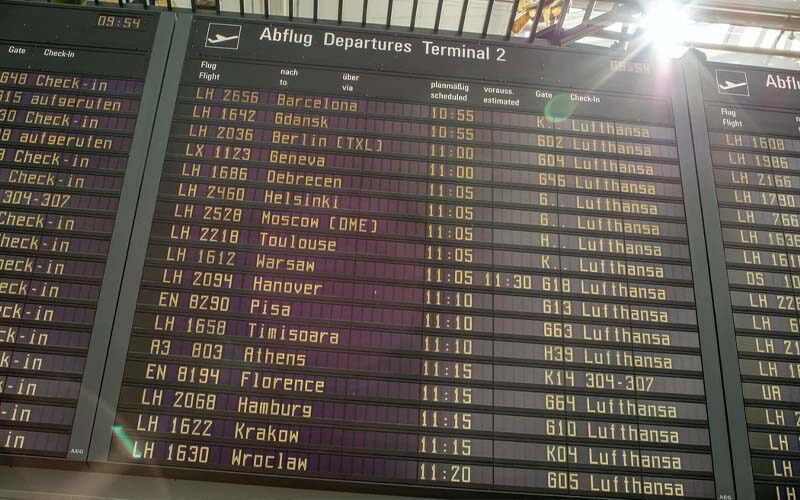
88. STAY IN TOUCH WITH YOUR LOVED ONES
Travel is not a lonely experience, far from it. You will constantly be meeting other people but many of those new relationships will be fleeting, someone will always coming or going (including yourself). Maintaining a strong connection with the people who know you best back home is not only good safety practice, it’s also important for your mental health (and theirs too).
Sure, it’s easy to get caught up in the excitement of your travels. It happened to me at first too and took work to repair some friendships, so my best advice is to let people know you are thinking of them from time to time. Text them, share photos, send postcards, chat on Facebook and buy them small gifts from the wonderful places you visit.
89. EAT HEATHY EVERY NOW & AGAIN
Do you eat out every night when you are home? Do you think the locals do? Of course they don’t but if you’re anything like me you might also suffer with something called Trip-e-tite. I admit I gained around 15 pounds over my first few years of travel, mostly thanks to eating out for every single meal. Travel can throw your body out of whack and when you’re moving from place to place it’s also difficult to maintain a regular workout routine. While being active can help, consider cutting down on the rice, bread and beer to keep your calorie intake low, if you’re feeling you’re gaining too much weight on your travels.
While it can be tempting to treat yourself to junk food and local delicacies to fuel your everyday travel, try to have at least a few days per week when you go for the healthier option – your body and mind will thank you for it! One of the reasons travel is so expensive is because we often eat out all the time. You’ll save a lot of money if you simply visit the local supermarkets and prepare some of your own ‘healthy’ meals, plus it’s super fun to shop in foreign countries too.
90. TRAVEL SLOW TO SAVE MONEY
The slower you travel, the more money you will save. You can negotiate long-term stays at your accommodation to save money (see tip #98), you won’t have as many transportation costs and if you have a kitchen, you can buy food from the supermarket and cook.
Don’t try to cram 6 countries into 2 weeks of travel, for example. All the good stuff happens when you really take time to explore and I can honestly say that none of my best travel experiences happened when I was dashing through somewhere. Spend more time in fewer places for maximum enjoyment, I promise you will have a much better time.
If you are lucky to be able to travel for an extended period of time, book a one-way ticket and your first few nights of accommodation, you’ll figure the rest out along the way. It is not as intimidating as it sounds, trust me, there’ll always be someone who’s willing to take your money by giving you a place to stay.
91. HOUSE AND PET SIT
Do you love animals or miss your pets from home? Well, why not look after one (or two, or three…) while also staying for free? Home and pet owners can have animal loving travelers house-sit and pet-sit for them for free, while travelers can stay for free with their own cuddly companions.
Since accommodation is one of the most expensive parts of travel and boarding pets is not exactly cheap (plus the pets get to stay in the comfort and security of their own home) this is a total win-win on both sides!
I use a match service called Trusted Housesitters, they offer sits all over the world and you can get 25% off membership via this link!
92. CARRY AROUND SPARE PASSPORT PHOTOS
Some people laugh at me when I say that I carry around a dozen spare passport photos, but they have come in incredibly handy and saved me a ton of hassle. I have used them to apply for visas around the world, to get a new passport (when mine expired on the other side of the globe) and I even needed one to buy a local SIM card in a small town in Peru once.
Having spare passport photos, meant that I didn’t have to waste time researching and then wandering around a city to try to find someone who could take a passport sized photo of me. Before you leave your home country, do yourself a favor and get a bunch of passports sized photos printed up to take with you.
93. CARRY A LUGGAGE WEIGHER
This neat little gadget will protect you against the expense of hefty excess baggage charges and ensure that you’re never again faced with any nasty surprises on check-in. Especially on those budget European airlines. It can rival the cost of the ticket itself, making them not so cheap after all!
I use the Camry Luggage Scale which literally ticks all the boxes for both affordability and quality. The best part is that, weighing in at just 90.72 grams , it’s light and small enough to add to your suitcase without making any noticeable difference.
94. KEEP A JOURNAL
You may think that you will remember all the details of your travels, but the simple fact is that you will not. Keeping a travel journal has long been a useful tool to record everyday events but it also increases self-awareness, heightens understanding and makes travel more rewarding. Plus, whether you are waiting at an airport terminal or on a long train journey, it helps you pass time you would otherwise spend bored or scrolling your phone. Store your memories and stories, that you’ll be able to go back and read – or relive – for years to come.
Travel journaling is also a practical way to stay organized, whether you want to keep track of your budget or itinerary, the name of a cafe in Paris or the dates of a London art exhibit, a travel journal is a great place to jot down details that you don’t want to forget in your planning and helps you keep track of things you want to remember. This awesome travel journal is not only super stylish but also has a handy inside cover pocket to keep brochures, tickets and other travel documents – safe and at hand.
95. IF CLOTHING CAN’T WITHSTAND BEING WORN MANY DAYS IN A ROW, THEN WASHED IN A SINK, LEAVE IT BEHIND
Space will be tight, so you will want everything item of clothing you pack to be essential. If your clothes require ironing or aren’t versatile, don’t bring them. I once brought a fancy cocktail dress around the world with me and not only did I never wear it (because nobody was wearing stuff like that) but I felt guilty about throwing it out, so carried it around with me for an entire year! There are many travel clothing brands out there but my absolute favorite is Splice Clothing (their clothing is so clever, being reversible with different colors on each side) in addition I also bring clothes that I don’t care about too much, knowing I can always replace them for cheap on the road, if needed.
Another way I save tons of money on the road, is to wash my clothes in the sink or the shower – double dutying my solid shampoo bar as a laundry detergent! Once you learn how to wash your clothes in the sink like a pro, trust me you’ll never use a laundromat again. P.S. I also travel with a few clothes pegs (which also double duty as food wrapper clips – double duty items are key, when traveling!).
96. SAVE YOUR FOREIGN CURRENCY
Why do so many travelers have so much funny money lying around? Well, because exchanging foreign currency after you have returned home is a hassle and a total waste of money, as your wallet gets hit hard (with exchange rates and fees) twice.
If you travel abroad with any frequency, save your foreign currency to use the next time you visit. If you realize at some point, that you will never be able to reuse again you can easily exchange it in any country or keep them organized in this Banknote World Currency Collection Album, as the ultimate souvenirs!
97. MAKE THE MOST OUT OF LAYOVERS
I absolutely love getting the chance to ‘sample’ a new destination during a layover and now actually look for long layovers, the longer the better (as long as they are during the day, that is!). Some of my layover highlights were on my way from Thailand to Canada, where I had two choices, a 3 hour layover or a 16 hour layover in Tokyo and I chose the latter. In those amazing 16 hours; I attended a practice sumo wresting session, visited the world famous fish market, dressed in a kimono participating in a traditional tea ceremony, visited a hedgehog café and saw so many more cool things along the way. Another time, on a 6 hour layover in Mexico City on my way to Peru, I went for a stroll around the historic old town and thoroughly enjoyed a delicious authentic Mexican lunch.
98. NEVER PAY FULL PRICE FOR AN AIR BNB
There is absolutely no need to pay full price for an Airbnb, in case you didn’t know. Have you ever heard the phrase ‘ask and yea shall receive?’, well this is where that totally applies.
On the Airbnb platform there is an option to contact the host before booking. I use a standard template that I just copy and paste (adjusting slightly for each listing, depending on the circumstances and the ask) to request a discount. This strategy tends to work better in the off season and for longer stays, but I am happy to report that since using it, I have never paid the full price and have saved myself a considerable sum (like thousands and thousands!).
Click here for a copy of my standard template and I’ll be happy to send it to you!
99. MEDICAL AND COSMETIC TOURISM
Did you know this was a thing? Every year an average of 14 million people do and it’s big business, which could save you a tremendous amount of money! Medical tourism, also known as health tourism or medical travel, is the practice of individual patients leaving their country of residence to seek medical care in another country. The medical treatment may be the primary motivation for travel or may be incidental to a planned trip abroad.
I discovered this completely by chance when I traveled to Croatia and cracked my tooth, visiting the local dentist’s office to have it fixed. They not only fixed my cracked tooth for $30 but offered me a cleaning for an additional $30. This was a stark difference in price from home and since at home, I had been quoted $11,000 for the replacement of six crowns I thought I would get a quote for those too, while I was there. That quote came in at $1,600 and I’m happy to say not only saved my bank account but gave me the biggest smile you can imagine – oh and because why not? – I added a teeth whitening treatment to go the extra mile, for just $80.
100. DON’T FORGET HOW LUCKY YOU ARE!
If you can afford to travel, you are luckier than an enormous part of the world’s population. Be grateful that you were born in a country that is safe and stable, be grateful you have a passport that allows you to easily travel, be grateful that you have your health, be grateful you were able to get a job (that gave you the ability to save up enough money for travel). Yes, you worked goddamn hard to get to this point, but you are still unbelievably privileged – never forget it.
Just be aware of how you represent your home. It is natural for people to take privileges from their home country for granted, but just because it’s “cool” at home doesn’t mean that it’s acceptable abroad. Statements like “first world problems” are actually quite offensive to some cultures. Also, be conscientious of identity words such as “American”. It is always better to describe yourself as a “from the United States” than simply an “American”, as anyone from North or South America is in fact considered an American…
PHEW!!!… So there you have it – my top 100 travel tips – all of which, I wish somebody would have shared with me before I set out on my adventures. Follow them and you’ll be the best traveler you can be in no time flat 🙂
P.S. If you would like digital downloads of my tips (ready to use on your own social media platforms) click here!!!
Share it if you like it 😉

Hi, my name is Emma and I’m so happy to see you here. I hope to provide you with valuable information, travel ideas and inspiration. It’s an amazing world out there and I want to help you discover the very best of it!

If you would like to keep up with my latest blogs, exclusive tips, discounts, giveaways and more.




